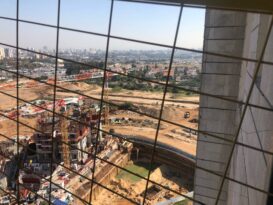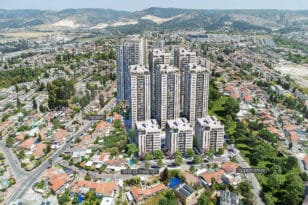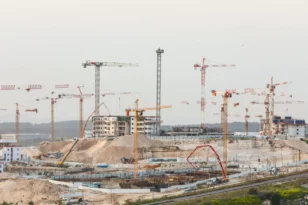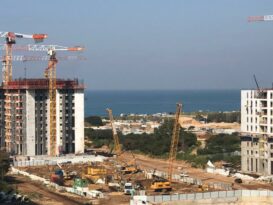In an attempt to cool the rise in apartment prices in recent months, the State has released the details of its plan for upcoming residential construction land tenders with massive construction to take place in Gush Dan, Ashdod, and Ashkelon. According to the plan, a total of 69,000 apartments will be marketed in 2021, including 1,900 in Tel Aviv, 2,900 in Ashdod, and 3,700 in Ashkelon.
Last week, the Israel Land Authority (ILA), the government agency responsible for managing State land, published its plan for residential construction tenders in 2021. According to the plan, over the course of the year, land will be marketed for the construction of a total of 69,000 apartments, 40,000 of which are located in areas of high demand, with the goal of slowing down Israel property prices. About 4,750 are located in Gush Dan, the most sought-after region in Israel, which includes Tel Aviv and the surrounding cities.
It is important to note that it is not routine practice for the State to disclose the full list of tenders planned for the entire year, and this is not something that has been done in the past. Up until this point, the State has announced a target goal of land tenders at the beginning of the year as part of an annual government work plan that is approved annually (except for 2020 and 2021 where such a plan was not approved due to political instability). However, a specific list detailing all tenders by neighborhoods and cities was never publicly released.
The plan was shared with the public this year against the background of a decline in the supply of land designated for new construction, which has led to a significant rise in property prices in Israel over the past six months. One of the direct causes of this drop in supply was the poor performance of the ILA, which did not function properly due to the Covid crisis and political chaos in Israel. In all of 2020, the ILA issued tenders for roughly 30,000 apartments, of which only half were successfully closed.
The ILA and the Ministry of Housing reasoned that releasing the plans for intended construction would lead to an expectation of an increase in supply, which would, in turn, moderate the rise in property prices in Israel. In addition, the plan creates a map of the main areas of new construction that we will see in the coming years.
So what does the tender plan include? The ILA plans to market land for the construction of new residential apartments in areas of particularly high demand, including 1,900 apartments in North Tel Aviv – the most expensive area for Israel real estate – on the land of the Sde Dov Airport, which was evacuated two years ago. There are also plans to construct 1,300 apartments on evacuated land that used to be part of the Tel Hashomer army base in Ramat Gan, and another 1,000 apartments on an evacuated military camp in Petach Tikvah. Additionally, the plan includes two land tenders totaling roughly 1,300 apartments in the sought-after city of Herzliya, located just north of Tel Aviv.
The government plan will also market land in other cities in the center of the country, such as Rishon Lezion (1,000 apartments), Be’er Ya’akov (2,200 apartments), Yehud (1,000 apartments), Rehovot (1,000 apartments), and a particularly impressive plan for 3,600 apartments in the city of Lod. In the southern part of the central area, tenders are planned for the construction of 2,000 apartments in the city of Yavne and another 2,000 apartments in Bnei Ayish, a rural town near Gedera that the government hopes to significantly expand.
The plan includes large tenders in Israel’s two southern coastal cities, with 2,900 apartments expected to be built in Ashdod and 3,700 in Ashkelon. In the northern region, 2021 will see tenders for 1,200 apartments in Kiryat Bialik in the Bay of Haifa and 720 apartments in Zichron Yaakov, a city located in the southern Carmel mountain range.
In a recent press release, Yaakov Quint, Director of the ILA, explained: “The plan was publicized in order to create transparency for the real estate market that will hopefully minimize the uncertainty of the developers and allow them to plan their moves wisely. In addition, our goal is to prevent developers from submitting high and unreasonable bids. We are doing everything we can to meet the target of marketing 70,000 housing units this year, including the tender exemption route. We want to make it clear that even if there are sometimes barriers, there are still land reserves that can enable us to meet the needs of the market and deal with the housing crisis and rising property prices in Israel.”







